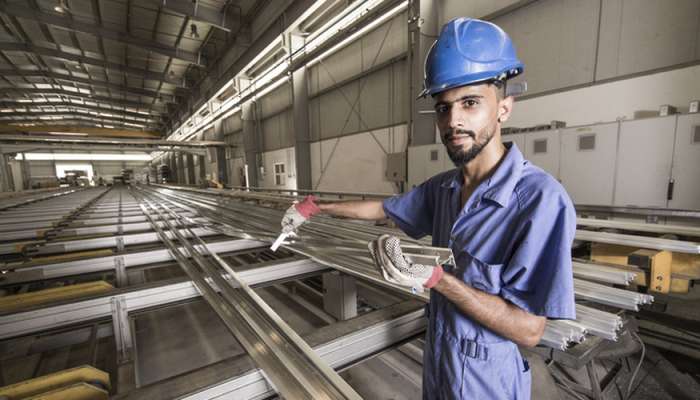
Muscat: The industrial sector serves as one of the main pillars of the Omani economy as it contributed OMR4.09 billion to the Gross Domestic Product (GDP) at current prices by end of June 2024, representing 19.5 percent of the total GDP.
The converting industries sector takes credit for this increase as it contributed by OMR2.19 billion, equivalent to 10.5 percent of the GDP, which greatly enhanced economic growth and generated employment opportunities.
Parties in touch with the industrial sector stressed that supply chains enhance production efficiency and help improve product quality, which contributes to increasing competitiveness at the local and international levels. They explained that the consolidation of supply chains greatly improves the process of converting and distribution, ensuring that market needs are met faster and more effectively.
They said that the integration of supply chains with various other sectors - including transportation and logistics - enhances the competitiveness of Omani products, helps open new markets and increases exports, which reflects positively on the national economy as a whole.
Dr. Ibrahim Ali Al Balushi, CEO of Karwa Motors, explained that the growth in the industrial sector’s contribution to the GDP at current prices is an indicator of the success of government policies in enhancing economic diversification. He added that the government made great efforts to reduce dependence on oil by diversifying the industrial sector that covered converting industries, mining, petrochemicals and food industries.
Al Balushi pointed out that the government has provided a set of incentives and facilities to support the industrial sector, most notably the establishment of specialized industrial zones like Sohar Industrial City, Duqm Industrial Zone and the free zones in Salalah and Al Mazunah. These zones provide an integrated infrastructure that facilitates industrial operations which eventually boost the competitiveness of Omani products, he added.
For his part, Eng. Khamis Mohammed Al Alawi, general manager of a leader industries company, affirmed that Omani industries achieved tangible success, thanks to the efforts made by the government and the private sector. He added that the Sultanate of Oman has diverse industries including food, oil, metal, and leather industries.
Al Alawi observed that taking advantage of available natural resources—like oil, gas and minerals—provides one of the most important factors for success. He added that—thanks to their high quality and continuous improvement in production standards—Omani products began to compete in local and regional markets.
On his turn, Azhar Hamoud Al Hinai, Executive Director of Bin Ahmed Plastic Industries Projects, said that the Omani industry has great potential to achieve big leaps forward, due to their focus on innovation and sustainability and to a high rate of cooperation among different parties concerned.
Al Hinai laid emphasis on economic diversification as a key pillar for achieving sustainable development in the Sultanate of Oman. He said that Oman succeeded in reducing dependence on oil by developing many industrial sectors like manufacturing aluminum and petrochemicals, mining and developing converting industries in the fields of food and pharmaceuticals.